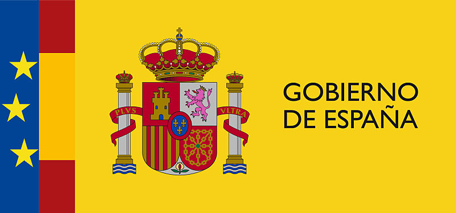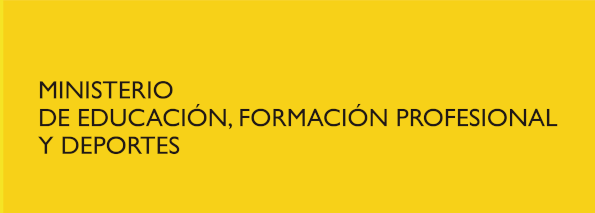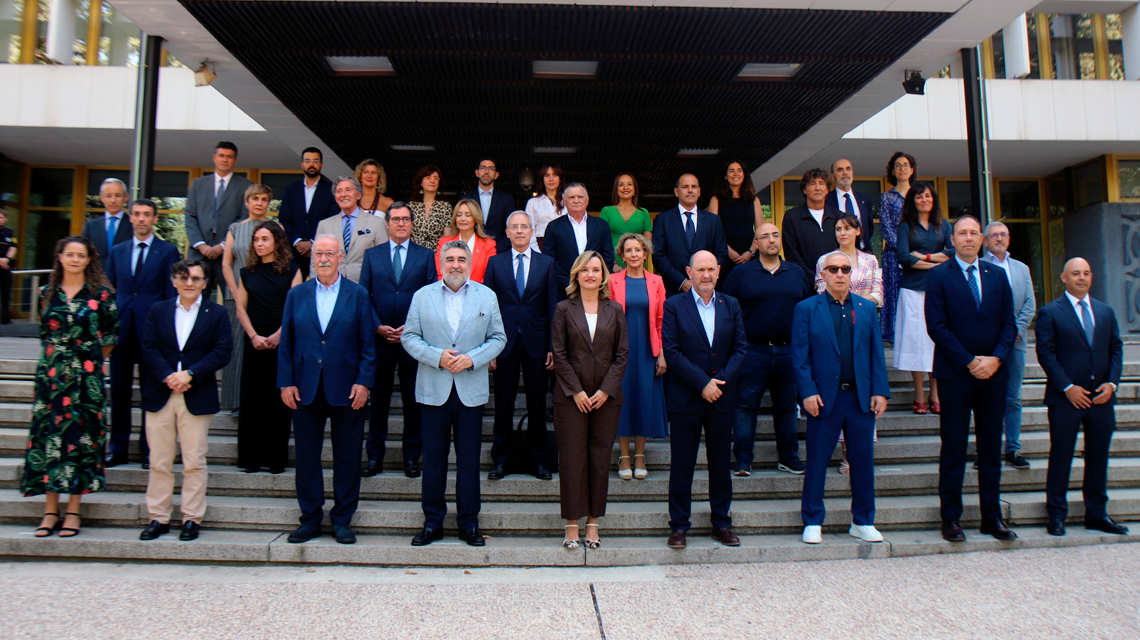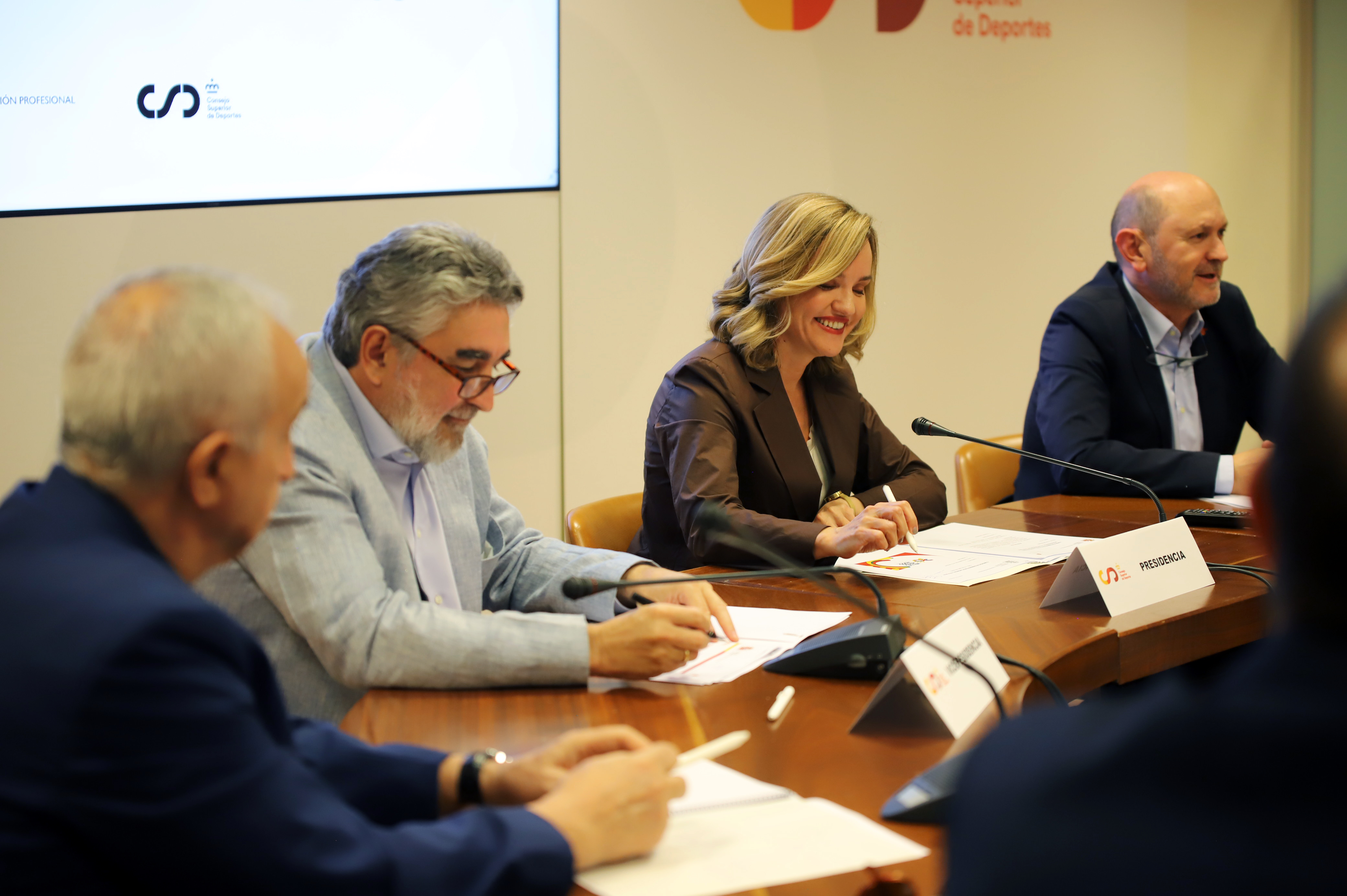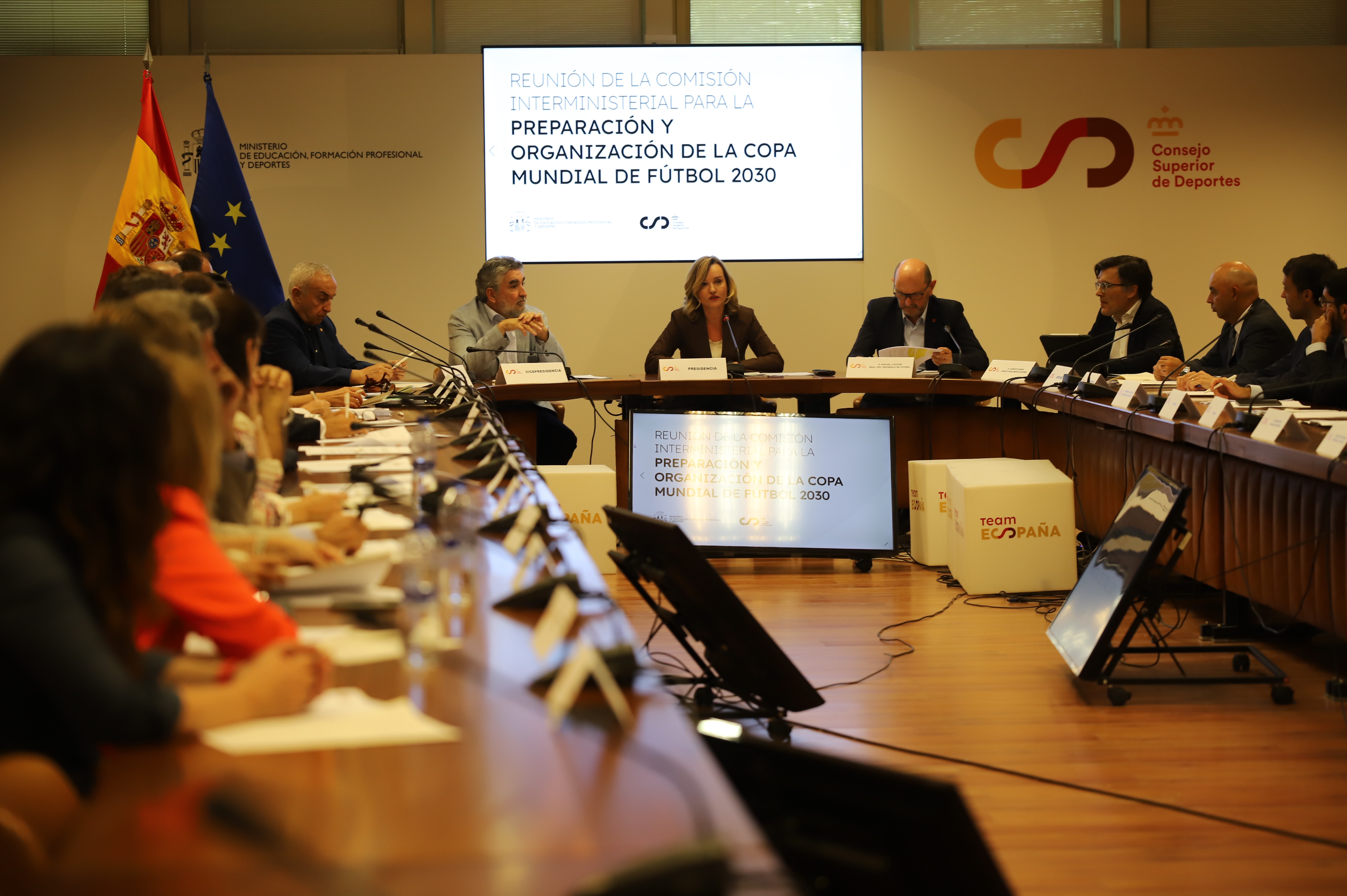Pilar Alegría: “The 2030 World Cup will be an opportunity to show the world the Spain of the 21st century”
-
The Minister of Education, Vocational Training and Sports, Pilar Alegría, presided on Tuesday the constituent meeting of the Interministerial Commission for the preparation and organization of the 2030 Football World Cup.
-
This body will coordinate public action in relation to this event, in which fifteen Ministries will participate to comply with the commitments made by the Government of Spain with FIFA and ensure the success of the first intercultural World Cup in history.
-
“We must approach the preparation and organization of the 2030 World Cup as an opportunity to transform, to inspire, to unite and to show the world the Spain of the 21st century,” said Pilar Alegría.
Madrid, July 15, 2025.- The Minister of Education, Vocational Training and Sports, Pilar Alegría, presided on Tuesday the constituent meeting of the Interministerial Commission that will allow to coordinate the action of the Government of Spain in relation to the preparation and organization of the 2030 World Cup.
The meeting held at the headquarters of the Superior Sports Council (CSD) marks, in the words of Minister Pilar Alegría, “a transcendent moment for which will be the greatest sporting event in our country since the Olympic and Paralympic Games of Barcelona’92”.
“The organization of the 2030 World Cup is a sign of FIFA’s confidence in our way of doing things. Since the demand and with a proven organizational capacity, Spain has been in recent years a great host of important events of a cultural, social and, of course, sports nature,” said Pilar Alegría, who holds the presidency of this Interministerial Commission.
In this body are represented the fifteen Ministries with which the Government of Spain will respond to the challenges of security, mobility, sustainability and logistics, among others, that presents an event of this nature. Not in vain, the organisation of the 2030 World Cup will require an enormous deployment of public, technical and human resources.
“There is no doubt that this World Cup will allow Spain to accelerate the modernization of its sports and urban infrastructures and that we invest strategically in the economic and social legacy. Different studies emphasise in a positive way the direct and indirect impact of such an event, which makes it possible to boost employment and boost key sectors, such as tourism, construction or trade, as well as improve public services. This World Cup must be for everyone and for everyone,” said Pilar Alegría.
The Interministerial Commission will lead the dialogue with the Governments of Portugal and Morocco, with whom Spain shares the organization of the first intercultural World Cup in history. It will also be responsible for promoting public-private collaboration and promoting activities related to the tournament, ensuring its maximum dissemination.
“This event goes beyond the strictly sporting sphere. It is an extraordinary opportunity to transform, to inspire, to unite and to show the world the Spain of the 21st century. We are an open, modern, diverse, innovative country deeply committed to the values of equality and integration, sustainability and human rights; which, in addition, has the experience, the ability and the will to take up this challenge with high vision,” said Pilar Alegría.
A Collaborative Interministerial Commission
The President of the CSD, José Manuel Rodríguez Uribes, spoke at the meeting as Vice-President of the Interministerial Commission, accompanied by the representatives of the fifteen Ministries that are part of this body.
Thus, the members of the Interministerial Commission are also the Undersecretary of the Ministry of Foreign Affairs, European Union and Cooperation, Xavier Martí; the Undersecretary of the Ministry of Presidency, Justice and Relations with the Courts, Alberto Herrera; the Secretary of State for Finance, Jesús Gascón; the Secretary of State for Security, Aina Calvo; the Undersecretary of Transport and Sustainable Mobility, Rafael Guerra; the Technical Secretary of the Ministry of Education, Vocational Training and Sports, Laura Gonzalez
All of them will be responsible for formulating proposals for regulatory changes and supervising the actions of the different ministries and public agencies. This structure will also allow an effective and continuous monitoring of the commitments made with FIFA and establish the framework of collaboration with the Royal Spanish Football Federation (RFEF).
“The work within this Interministerial Commission will be eminently collaborative. Only through loyal cooperation between the different ministries, administrations and sports, economic and social sectors will we be able to rise to a country challenge such as the organization of the 2030 World Cup,” said Rodríguez Uribes.
The Interministerial Commission will carry out its work through the different working groups derived from it. They will be attended by a representative of the governing body of world football, as well as the presidents of the Royal Spanish Football Federation, Rafael Louzán; the Spanish Olympic Committee, Alejandro Blanco; and the Spanish Paralympic Committee, Alberto Durán. All three attended the constitutive meeting held on Tuesday.
Along with them have been present personalities of recognized prestige, such as the former national selectors José Antonio Camacho and Vicente del Bosque, this last world champion in South Africa 2010. In future meetings, some players from that extraordinary generation that won the World Cup fifteen years ago will be included.
On behalf of the Autonomous Communities, the Minister of Sports of the Generalitat de Catalunya, Berni Álvarez, and the General Secretary for Sport of the Junta de Andalucía, Isabel Sánchez, attended.
In addition, the president of the Spanish Confederation of Business Organizations (CEOE), Antonio Garamendi, and the representatives of UGT, Cristina Estévez, and of CCOO, Armando Recio, have participated.
The president of Leyendas España and Internacional with the Spanish national team, Salva Ballesta; the former footballer Patxi Salinas; the president of the Real Club Celta de Vigo, Marián Mouriño; the president of the Spanish Sports Press Association, Jesús Álvarez; the director of the Department of Economy of the University of Alcalá, Elena Martínez; and the director of Sports of TVE, Rosana Romero, were other personalities invited to the first meeting of the Interministerial Commission, which today has set in motion the work of 2030.
Images for editorial use available in: https://flic.kr/s/aHBqjCmzFW
